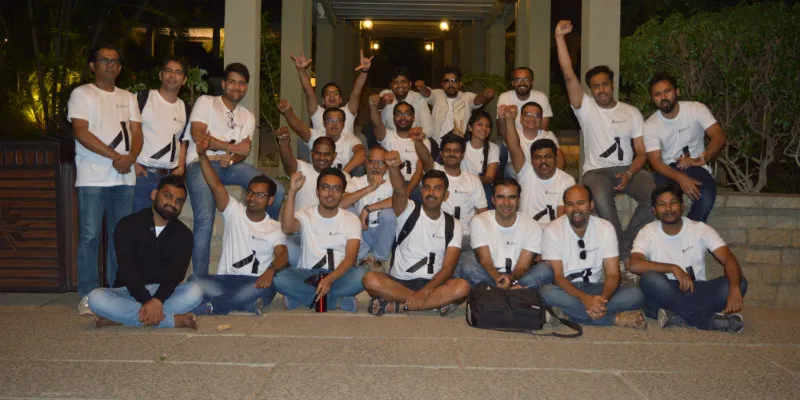How Hindu Group’s RoofandFloor is cutting through clutter in a crowded realty space
The real estate industry in the country seems to have made a habit of courting controversy. In fact, the industry has for long been questioned for opaqueness, non-transparency, and breach of trust.

Two and a half years ago, media house Hindu Group, which has been exploring online opportunities in the non-media space, decided to address the various issues facing the realty industry.
Real estate legalities are confusing and see-sawing property prices can induce despair in the toughest of hearts. The group's vision was to build India’s first homebuyer-centric platform with a view to creating trust and transparency in the entire home buying journey. It decided to offer the experience through content, community, and commerce.
In September 2014, the group launched RoofandFloor, a realty-centric online platform which connects homebuyers and builders.
“We are building a home-buying companion product which focuses on understanding a homebuyer’s needs, gives personalised recommendations, accurate information, and provides directions with the help of expert advisers,” says Gowri Shankar, CEO and Co-founder of RoofandFloor.
Gowri worked with McKinsey for seven years. Later, he was a part of the executive leadership team at InMobi. He had then gone on to co-found AllChemist, a mobile marketplace for pharmacies.
RoofandFloor offers solutions in Chennai, Bengaluru, Mumbai, Hyderabad, Trichy, Madurai, Vizag and Vijayawada.
Gowri says the real estate digital market is a crowded space with some players being more than a decade old. Therefore, the real challenge was to cut through the clutter in the marketplace, identify and solve the problems of the home buyer.
The platform’s home-buying companion product works on home buying intelligence platform, which uses data about users' preferences to recommend the best projects that meet their preferences.
To complete the home-buying companion product, the platform will also be launching a home-buying advisory service. The service will help homebuyers in all stages of home buying.
Business model
RoofandFloor has two different monetisation models — monetisation of traffic on the product and through providing end-to-end home-buying service for homebuyers. Says Gowri,
“We do not take brokerage from builders. This is a paid service for buyers. The platform’s advisors hand-hold the homebuyers through the entire journey, right from discovery to shortlisting to site visit and negotiation assistance and eventually in booking their dream homes. They also provide legal and financial advice to buyers.”
Trade tricks
Home buying is not a high frequency purchase. For many people, this is a once-in-a-lifetime investment and even for repeat buyers, the average time between two purchases can be upwards of three to four years. The homebuyer’s decision-making cycle is typically around nine months. The key challenge for any real estate platform is to keep a homebuyer engaged during this period.
According to the platform, it has a phase-wise approach and tailor-made offerings for homebuyers based on which stage of home buying they are in.
“We are also heavily investing in user intelligence and analytics which is a key differentiator for RoofandFloor,” says Gowri.
He adds that for customer acquisitions the focus has always been on organic marketing. Besides, a sizeable proportion of customer acquisition happens through referrals from existing customers who have experienced the product and the service.
A crowded market
According to IBEF, the Indian real estate market is expected to touch $180 billion by 2020. The housing sector alone contributes between five and six percent to the country's GDP.
There is a horde of players who offer solutions in the realty market — both offline and online.
In the online category, Magicbricks, 99acres, PropTiger, DoorKeys are among the prominent names, while there are many other players that provide selling, buying, and renting facilities.
In the past two years, the real estate startup market has witnessed many new developments.
The PropTiger-Housing merger was the most recent development in this category. In April 2015, PropTiger had announced the acquisition of Makaan.com for an undisclosed amount.
During early 2016, online classified major Quikr acquired realty portal CommonFloor for an undisclosed amount. During November last year, QuikrHomes, the real estate arm of e-commerce marketplace Quikr, acquired Bengaluru-based home rental marketplace Grabhouse.
Experts say that the consolidation hasn’t impacted the market much; instead, it has helped it maintain its sanity.







